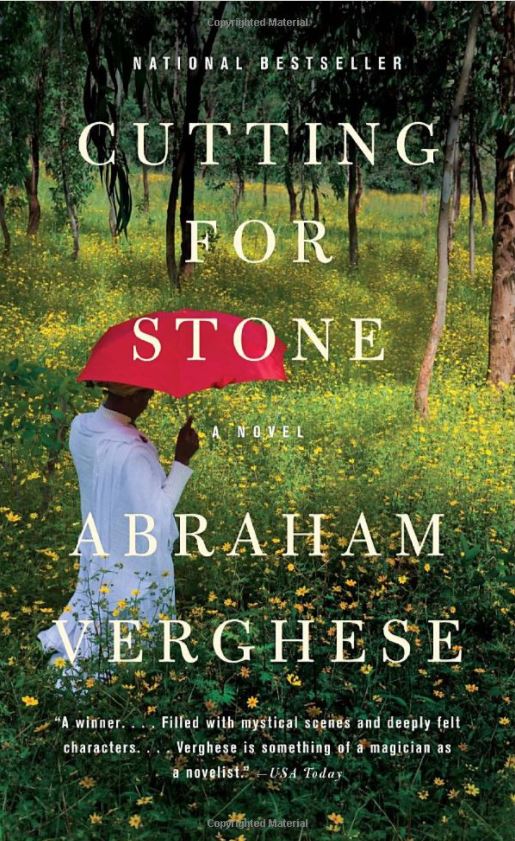The Schutz Book Club
CUTTING FOR STONE - 2017

The book club participants liked the idea of having another book for an online discussion. For the next 6 months, that book will be Cutting for Stone by Abraham Verghese. Many of us have read the book, but it's worth a revisit if you've read it, or at least keeping in touch as you might want to contribute as we delve into the book's themes
Find on
ON THE SHELF
2017: More good reads recommended by book club members:
- Desert Queen by Janet Wallach, for more reading about Gertrude Bell
- A Thread of Grace by Mary Doria Russell for more reading by our 2017 book choice author
- Tribes with Flags by Charles Glass for more reading about the "chaos" of the Middle East
- Lawrence in Arabia by Scott Anderson for more reading about T E Lawrence
JOIN IN ON THE DISCUSSION FOR "CUTTING FOR STONE"
2 Comments
Submit a Comment
You must be logged in to post a comment.

I recently finished rereading Cutting for Stone and was absorbed in it just as much as the first time. I remembered the medical details from the first reading, because it was unusual for a novel and yet familiar, because of my medical background. This time, however, I picked up much more of the cultural context and was struck how many details resonated with my memories of being in at Schutz and in the region, and found myself smiling while reading about things like traveling by plane with animals and bales of cargo. Did anyone else also pick up threads of TCK effects in the story? Would love to hear from those of you lived and worked in Ethiopia, and how similar the experiences were for those of you in Sudan and other outposts. And of course, a lot can be said about the roles of women in this story. Here’s a book discussion guide with some interesting questions to ponder, too: https://www.readinggroupguides.com/reviews/cutting-for-stone/guide
Because I was raised in Ethiopia (1954-1968), and went back to teach (1989-1996) I was totally struck by the cultural context, and especially, the sights, sounds, smells and “sensory feelings” Abraham Verghese captures so well.
I actually lived through some of what he writes about–during the attempted coup of 1960, I was in my first year of boarding school in Addis Ababa. We were sent home in the middle of the day (exciting, for a 10 year old!) and then were house-bound for most of the next week, listening to gunfire. Things had settled down, Jean Haspels and I got special permission to go out and play, and we were outside when the bomber went right overhead, low, breaking the sound barrier and carrying bombs it dropped on the palace. I remember wondering about those rocket-shaped gray things nestled under the wings of the plane . . .
Another overlap in my life and this story–I was visiting my folks in Ethiopia in 1977, when my husband got a bad case of hepatitis and we had to stay for the birth of our first child. In sorting that out, we visited the hospital this story is based on, and talked to the doctor about my having the baby there. I might have, except there was a shoot-to-kill curfew in place. I went out of town to a mission guest house and hospital instead. For obvious reasons!
AV shrinks the time between the socialist-toned coup and the revolution that toppled the emperor in 1977 and turned so violent, but otherwise the historical context is well represented.